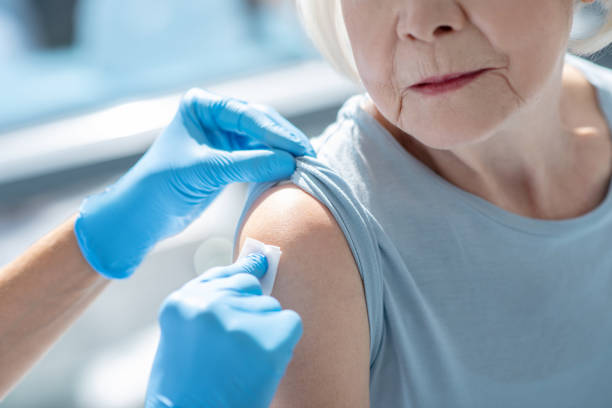The World Health Organization (WHO) Technical Advisory Group on COVID-19 vaccine composition, after meeting earlier this month, today released its recommendations for updated vaccines, which say the current monovalent JN.1 or KP.2 strains are still appropriate, but monovalent LP.8.1 is a suitable alternative.
Over the last 2 years, after examining the latest data on virus changes and response to current vaccines, the group has been weighing in on strain recommendations twice a year, once in the spring and once in December.
The WHO’s latest recommendations come ahead of a meeting of the Food and Drug Administration (FDA) vaccine advisory group on May 22, which will discuss the make-up of COVID vaccines for use in United States during the fall and winter months. Current US vaccines include the KP.2 antigen. Also, the WHO recommendations come as a few countries in Asia report rising COVID activity.
The group emphasized that while country reporting gaps make it difficult to sort out detailed epidemiological trends, it’s clear that the virus continues to circulate, with the capacity for severe disease, long COVID, and death. Most deaths continue to occur in people ages 65 and older, and some countries have reported increased hospitalizations and deaths in children younger than 1 year old.
So far, currently circulating variants all descend from the Omicron JN.1 variant. Of those, the proportion of LP.8.1 viruses continues to rise, along with others from the variant family, including LF.7 and its descendants.
LP.8.1 antigen appears a bit more robust
Published and unpublished data from human studies show that immunization with JN.1 and KP.2 monovalent vaccines prompts significant neutralization against JN.1 and its descendants, including KP.3.1.1, XEC, LF.7.2.1, and LP.8.1.
Lab data shared confidentially from vaccine manufacturer animal studies suggest that monovalent JN.1 and KP.2 vaccines still prompt high neutralizing antibody titers against the newer JN.1 offshoots, including KP.2, KP.3.1.1, XEC, LP.8.1, and LF.7.2. However, titers against LP.8.1 were lower. Findings in humans were similar, though scientists found some variations in neutralizing antibody titers against LP.8.1 and LF.7.2, mostly similar or lower than for JN.1 and KP.2 antigens.
WHO advisors said an LP.8.1 antigen offers similar or modestly higher cross-reactive antibody response to currently circulating JN.1 variants. “Mathematical modeling indicates that an increase in neutralizing antibody titers may translate into an improvement in vaccine effectiveness and duration of protection,” they added.
Rising COVID activity in Hong Kong, Singapore
Hong Kong’s Centre for Health Protection (CHP) said rising COVID activity has reached a 1-year high and urged people to take precautions and receive an initial dose of COVID vaccine as soon as possible. Over the past 4 weeks, test positivity rose from 6.21% to 13.66%. It also recommended that people at high-risk for complications, including seniors and people with underlying health conditions, get a booster dose as soon as possible to reduce the risk of severe or fatal illness.
Since March, the region’s dominant strain has been XDV, and the CHP said there is no evidence that it causes more severe disease.
Singapore is also seeing a recent rise in its COVID indicators, with hospitals able to manage the increase in cases, The Straits Times reported, citing the country’s health ministry and its Communicable Diseases Agency. The two main variants are LF.7 and NB.1.8, which make up two-thirds of cases and both descend from JN.1.
Officials added that the rise in cases could be due to several factors, including waning population immunity. They urged people at risk for severe illness to stay current with their recommended vaccine doses.



















